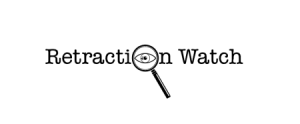 Dear Retraction Watch readers: Those of you signed up for our emails for every post may have wondered why we haven’t sent you any emails since Saturday. Well, it wasn’t because we didn’t want to. We had a technical glitch, which we’ve now fixed. Apologies for that, and here are links to the posts that appeared this week. We’re posting them in case you missed them. Thanks for reading!
Dear Retraction Watch readers: Those of you signed up for our emails for every post may have wondered why we haven’t sent you any emails since Saturday. Well, it wasn’t because we didn’t want to. We had a technical glitch, which we’ve now fixed. Apologies for that, and here are links to the posts that appeared this week. We’re posting them in case you missed them. Thanks for reading!
- A court in Finland has ruled that universities must go through the court system if they want to revoke a degree.
- A mathematician has lost two publications that overlap substantially.
- A PLOS ONE paper about chronic pain plagiarized from multiple sources — 17, in fact.
- If authors duplicate portions of their own work in multiple papers — such as descriptions of methods, a boilerplate background to their field, etc. — should that be considered misconduct? Take our poll.
- Neuroscientists have retracted a research letter less than two months after it appeared, admitting they appeared to pass off others’ data as their own.
- An epilepsy researcher has received a retraction and a correction in quick succession, after a former colleague raised red flags about the work.
- Authors reported on results of a lung cancer test — trouble was, the scanner didn’t arrive at their institution until years after the alleged tests.
- What is the difference between “reproducible” and “replicable”? And how does each relate to results that are “generalizable” and “robust”?
- An author has begun the process of taking legal action against a publisher for retracting his paper.
- A week after announcing that a researcher formerly at the University of Chicago had faked the results of more than 70 experiments, the U.S. Office of Research Integrity announced yesterday that one of his colleagues also falsified data.
- An investigation at Taipei Medical University found that an author made “serious mistakes” when preparing a manuscript.